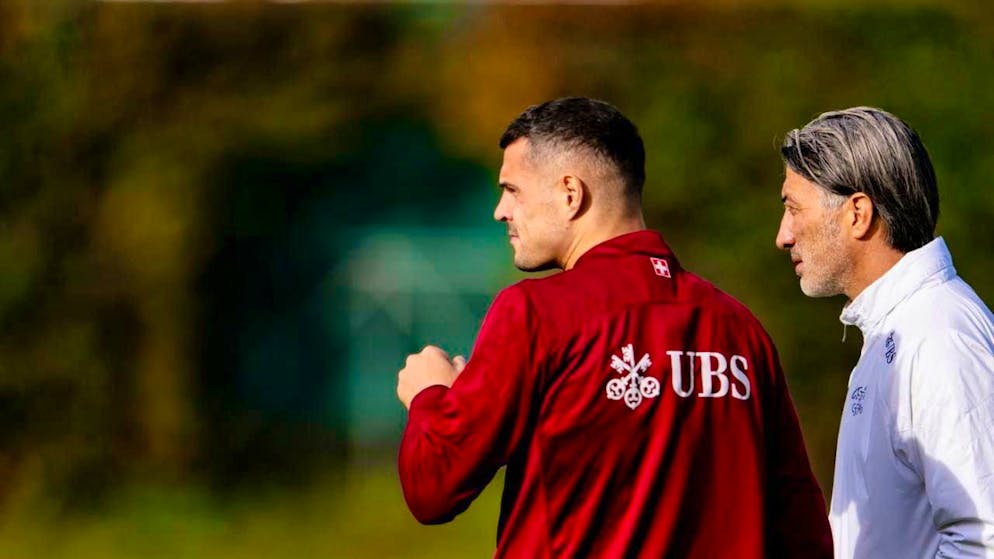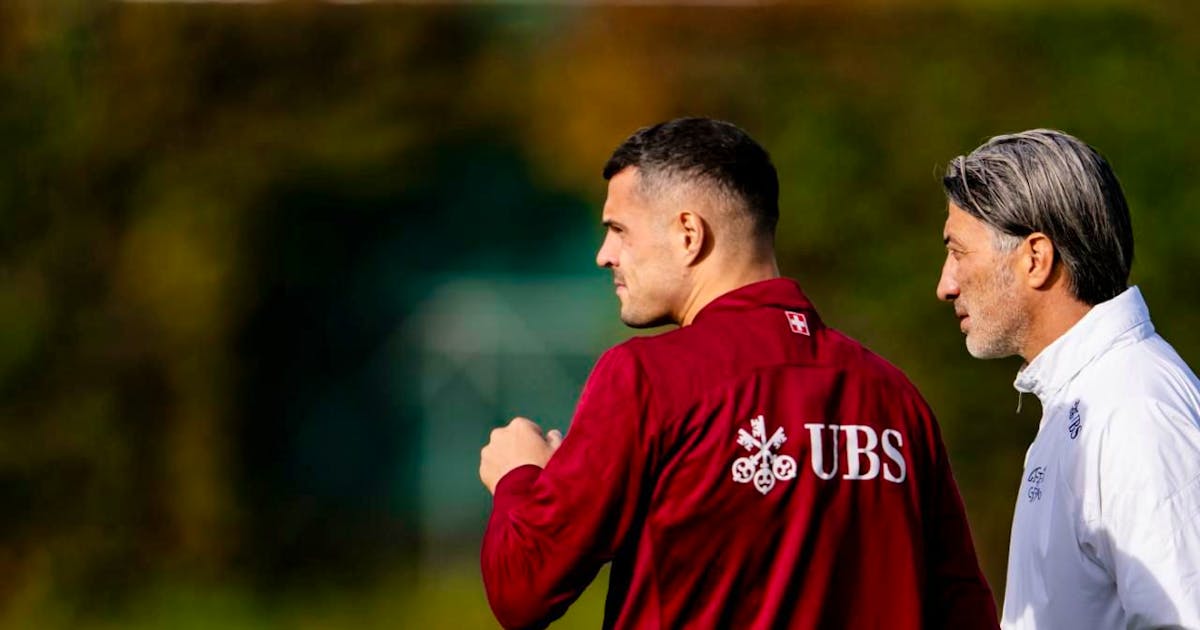
National team captain Granit Xhaka and coach Murat Yakin preparing for the home game against Sweden
Keystone
The Swiss national team is almost there. At the Stade de Genève on Saturday, they can finally set the course for the USA, Canada and Mexico.
The math is simple: if Switzerland pick up more points against Sweden than Kosovo in Ljubljana, they will secure their sixth World Cup appearance in a row. Even if the two teams get the same number of points, the Swiss would practically be through due to their significantly better goal difference.
But the constellation is not given any room internally. In Lausanne, the players preached the same mantra during preparation: focus on your own performance, not on the mathematics of the standings. The September home games against Kosovo (4:0) and Slovenia (3:0) are the frame of reference. With early dominance and defensive stability, those games were already decided before the break.
The moment will come against Sweden when it will be less about emotion and more about routine, maturity and knowledge of their own strengths.
An unpredictable opponent
When the match schedule was published, the clash with Sweden was seen as a possible final match for group victory. Now the Scandinavians are bottom of the table. However, the Swiss are wary of drawing conclusions about the strength of their opponents from this starting position. The 2:0 victory in the away game was deceptive: the Swedes missed two clear chances to take the lead and only conceded defeat after conceding the second goal in stoppage time. At the time, captain Granit Xhaka described them as “clearly the strongest opponent in the group”.
The change of coach a month ago has given this verdict added weight. Graham Potter is bringing new ideas with him and has already announced a change of system. It remains to be seen what role Alexander Isak will play in this. The star striker from Liverpool has been struggling recently. It is precisely this unpredictability that makes the task so tricky for the Swiss.
Experience as an asset
What speaks in Switzerland’s favor, however, is something that cannot be trained at short notice: Experience and a well-oiled machine. The defensive unit – four players with 323 caps between them – is emblematic of the stability of this qualifying campaign, in which Switzerland have yet to concede a goal. In front of them, Xhaka, the record player with 141 appearances, directs the Swiss game with a composure that only comes with years of top-level football.
Dan Ndoye, Ruben Vargas and Breel Embolo, players who not only have international experience but also a shared history, are also added to the attack. The framework of the national team has already experienced several important matches – including against world-class teams. “Many of us have been playing in top leagues for a long time,” said Michel Aebischer. “In big games today, we know exactly what’s needed. This calmness takes away your nervousness.”
Who will replace Freuler?
The loss of Remo Freuler, normally the fixture alongside Xhaka in defensive midfield, has hit the team hard. But it is a position in which Yakin has several good options: Djibril Sow was involved in the game-deciding scene in Stockholm, Michel Aebischer was a regular at the European Championships and is tactically variable, and 20-year-old Johan Manzambi brings dynamism and recklessness to the game as a box-to-box player.
Who plays depends not only on form, but also on the expected Swedish system. Yakin must now anticipate and draw the right conclusions. After three successful games, he did not quite manage to do so in Slovenia, when the opponents played much more defensively than the Swiss national coach had expected.
This time, home advantage could help. The Stade de Genève is practically sold out. Expectations are high, but the team knows that the ticket will not be won through atmosphere, but through serenity. Switzerland has become accustomed to taking big steps in recent years. Now another one awaits.
